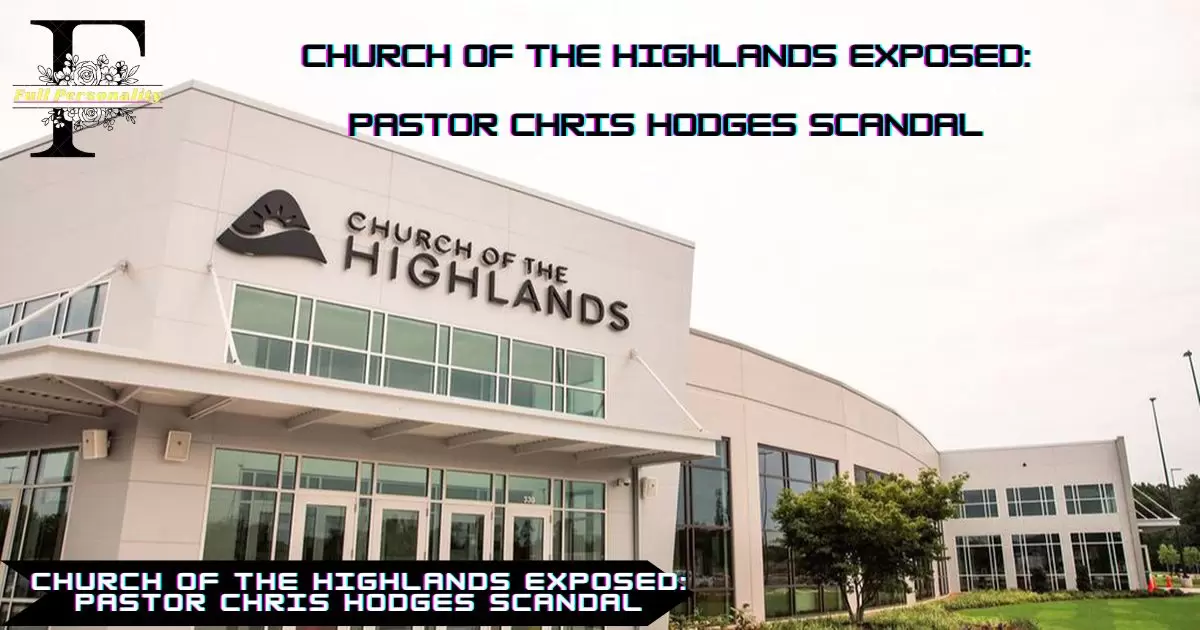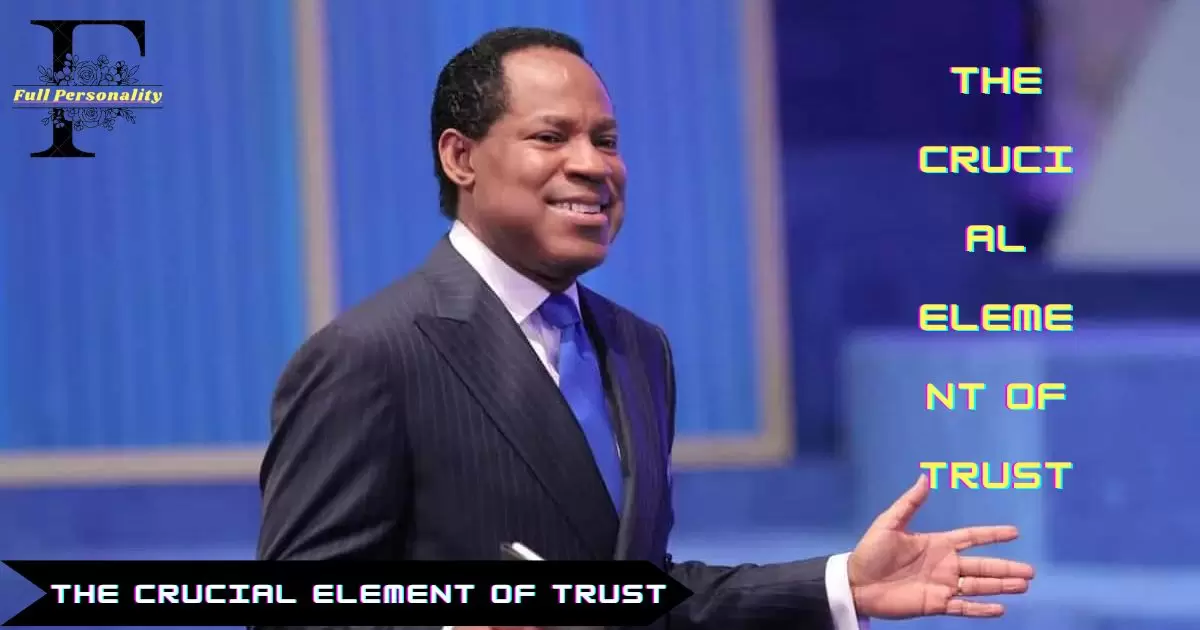In the realm of megachurches, few names have resonated as powerfully as Pastor Chris Hodges and the Church of the Highlands.
But even the mightiest oaks can be shaken by storms, and this once-unassailable institution found itself at the center of a whirlwind. Let’s delve into the complexities of this scandal, examining its roots, impact, and path forward.
Church of The Highlands Exposed
The Church of the Highlands, a sprawling megachurch network based in Birmingham, Alabama, has long been a beacon of modern Christianity.
With its slick production values, charismatic leadership, and message of hope, it’s drawn thousands into its fold. But beneath the polished surface, cracks began to appear.
In 2020, the church faced intense scrutiny when Pastor Chris Hodges was found to have “liked” several social media posts that were deemed racially insensitive.
This seemingly small action sparked a firestorm of controversy, laying bare underlying tensions and raising questions about the church’s true values.
You may want to Read: Kase Abusharkh Amy Berry: A Journey of Innovation and Impact
The exposure wasn’t just about a few errant clicks. It peeled back layers of the church’s operations, revealing a complex web of influence, money, and power. Critics pointed to the church’s rapid growth and questioned whether it had lost touch with its spiritual roots in pursuit of expansion.
Is Chris Hodges the Establishing and Top Leader of the Chapel of the High Countries?
Indeed, Chris Hodges is both the founding and senior pastor of the Church of the Highlands. He established the church in 2001, starting with a core group of 34 people.
Under his leadership, it grew to become one of the largest churches in America, boasting multiple campuses across Alabama and beyond.
Hodges’ vision was to create a church that would “reach people with the life-giving message of Jesus.” His charismatic preaching style and emphasis on small groups as a means of fostering community resonated with many, fueling the church’s explosive growth.
What Does the Church of the Highlands Believe?
The Church of the Highlands adheres to a contemporary evangelical Christian doctrine. Their core beliefs include:
- The inerrancy of the Bible
- The Trinity (Father, Son, and Holy Spirit)
- Salvation through faith in Jesus Christ
- The importance of water baptism and communion
They emphasize a personal relationship with God and the power of the Holy Spirit in daily life. The church also places a strong focus on community outreach and missions, both local and global.
You may want to Read: Brook B Taube – Entrepreneur, Investor and Philanthropist
| Core Belief | Description |
|---|---|
| Bible | Infallible word of God |
| Trinity | God as Father, Son, and Holy Spirit |
| Salvation | Through faith in Jesus Christ |
| Baptism | Symbolic act of faith |
| Communion | Remembrance of Christ’s sacrifice |
These beliefs form the foundation of the church’s teachings and activities. However, critics have argued that the church’s rapid growth and emphasis on prosperity may have overshadowed some of these core tenets.
Chris Hodges’ Success and Influence
Chris Hodges’ journey from a small-town pastor to a nationally recognized religious leader is nothing short of remarkable. His influence extends far beyond the walls of the Church of the Highlands, reaching into politics, education, and social services.
Under Hodges’ leadership, the Church of the Highlands has become a powerhouse in the world of megachurches. It’s not just about the numbers, though they are impressive. with over 60,000 weekly attendees across multiple campuses. It’s about the reach and impact.
You may want to Read: Entertainment step-by-step
Hodges has authored several books, including “Fresh Air” and “The Daniel Dilemma,” which have further expanded his influence. He’s a sought-after speaker at Christian conferences and has mentored numerous pastors through the church’s growth track program.
The church’s Highlands College, a ministry training school, has produced hundreds of graduates who’ve gone on to leadership positions in churches across the country. This has allowed Hodges’ vision and methodology to spread far beyond Alabama’s borders.
But with great influence comes great scrutiny. The scandal that erupted in 2020 wasn’t just about Hodges’ social media activity. it was a referendum on the entire ecosystem he had built.
Potential Causes & Enabling Factors
The roots of the scandal run deep, intertwining with broader societal issues and the unique challenges faced by megachurches. Here are some potential factors that may have contributed:
- Rapid Growth: The church’s meteoric rise may have outpaced its ability to maintain accountability structures.
- Echo Chamber Effect: Surrounded by supporters and yes-men, leaders can become insulated from differing viewpoints.
- Political Entanglement: The close relationship between some evangelical churches and conservative politics has been a source of tension.
- Lack of Diversity: Despite efforts at inclusion, many megachurches struggle with true racial and ideological diversity.
- Social Media Pitfalls: The immediacy and reach of social media can amplify missteps, turning small errors into major controversies.
These factors created a perfect storm, priming the church for a fall from grace. But it’s crucial to remember that no single factor is solely responsible. It’s the complex interplay of these elements that set the stage for scandal.
Aftermath and Response
In the wake of the controversy, Pastor Chris Hodges issued a public apology. He stated, “I realize that I have hurt a lot of people, and I’m deeply sorry. I regret the pain that it has caused, especially to my black brothers and sisters in Christ.”
The church took several steps in response to the outcry:
- Initiated diversity training for staff and leadership
- Formed a committee to address racial issues within the church
- Pledged to increase representation of people of color in leadership roles
- Committed to more active engagement with diverse communities
However, the damage was done. The Birmingham Board of Education voted to end its partnership with the church, which had been providing services in local high schools. This decision highlighted the real-world consequences of the scandal beyond the church walls.
Response From Supporters
Despite the controversy, many within the Church of the Highlands rallied around Pastor Hodges. They pointed to his years of service, the church’s extensive community outreach programs, and what they saw as a genuine commitment to growth and change.
One long-term part expressed, “Minister Chris has forever been tied in with uniting individuals. This was a mistake, yes, but it doesn’t erase all the good he’s done.”
You may want to Read: Showbizztoday.com Exploring the Fascinating Realm of
Supporters emphasized the need for forgiveness and second chances, core tenets of Christian belief. They argued that the response to the scandal should be guided by these principles.
The Crucial Element of Trust
At the core of this outrage lies the issue of trust. Religious leaders, perhaps more than any others, rely on the trust of their followers. When that trust is broken, the fallout can be severe and far-reaching.
Trust in religious institutions has been declining in recent years, with scandals like this one contributing to the trend. According to a 2019 Gallup poll, only 36% of Americans had a “great deal” or “quite a lot” of confidence in organized religion, down from 68% in 1975.
This erosion of trust doesn’t just affect the church involved in the scandal. It ripples out, impacting other religious institutions and even society at large. Rebuilding this trust is a monumental task, requiring not just words, but sustained action and transparency.
The Complexity of Scandal
It’s tempting to view scandals in black-and-white terms, but the reality is often far more nuanced. The Chris Hodges scandal illustrates the complex interplay of personal actions, institutional structures, and societal pressures.
On one hand, we have a leader who made a mistake. A series of social media “likes” that reflected poorly on his judgment and sensitivity. On the other, we have an institution that has perhaps grown too big, too fast, losing touch with some of the communities it claimed to serve.
This scandal serves as a case study of the challenges faced by megachurches in the 21st century. How do they balance growth with accountability?
How can they remain relevant and inclusive in an increasingly diverse society? These are questions that the Church of the Highlands, and institutions like it, must grapple with moving forward.
Is Chris Hodges Conservative or Liberal?
The question of Pastor Chris Hodges’ political leanings became a focal point of the controversy. While Hodges has generally avoided explicit political statements, his actions and associations have led many to view him as conservative.
The social media posts that Hodges “liked” were associated with conservative viewpoints, particularly on racial issues. This aligns with a broader trend of white evangelical churches in the South tending towards conservative politics.
You may want to Read: Noel J. Mickelson’s Exposed: The Untold Story (2024 Deep Dive)
However, it’s worth noting that Hodges has emphasized that the church should transcend political divisions. In a 2018 sermon, he stated, “We’re not left, we’re not right. We’re not liberal, we’re not conservative. We’re the church.”
Despite this rhetoric of neutrality, the scandal highlighted the difficulties religious leaders face in separating their personal views from their public roles. In an increasingly polarized society, even small actions can be seen as political statements.
The Road Ahead
The path forward for Pastor Chris Hodges and the Church of the Highlands is neither straight nor easy. Rebuilding trust and healing divisions will require sustained effort and genuine change.
Some key steps that experts suggest for churches in similar situations include:
- Transparency: Open and honest communication about mistakes and plans for improvement.
- Accountability: Establishing clear structures to hold leadership accountable.
- Diversity: Not just in congregation, but in leadership and decision-making roles.
- Education: Ongoing training on issues of race, bias, and inclusion.
- Community Engagement: Actively reaching out to and working with diverse communities.
The scandal serves as a wake-up call for the Church of the Highlands and religious institutions across the country. It highlights the need for introspection, growth, and a recommitment to core values.
One religious scholar noted, “Times of crisis can be opportunities for profound change. The question is whether churches will seize that opportunity or fall back into old patterns.”
The Chris Hodges scandal is more than just a story of one pastor’s misstep. It’s a mirror reflecting the challenges religious institutions face in a rapidly changing world. How the Church of the Highlands navigates this crisis may well set a precedent for others to follow.
FAQs
Where is Pastor Chris Hodges now?
Pastor Chris Hodges remains at the helm of the Church of the Highlands, steering the megachurch through choppy waters. He’s doubled down on community outreach and reconciliation efforts, proving that even in the eye of a storm, a captain can right the ship.
Who cut ties with the Church of the Highlands?
The Birmingham Board of Education severed its partnership with the church, a move that echoed like a thunderclap across the community. This split highlighted how quickly bridges can burn when trust is shaken.
What denomination is Chris Hodges?
Chris Hodges leads a non-denominational church, but it’s far from ordinary. Think of it as Christianity with a modern twist – all the core beliefs, but packaged for the 21st-century seeker.
What is the net worth of Chris Hodges?
Pastor Chris Hodges Net Worthtext=with A Net Worth of 100 Million.
Who are Chris Hodges’ children?
Hodges and his wife Tammy have five children, each carving their paths. They’re like branches of a mighty oak, spreading out but still rooted in their parents’ legacy.
Who is Christopher Hodges?
Christopher Hodges is the man behind the pulpit. a visionary who turned a small gathering into a spiritual empire. He’s part preacher, part CEO, all charisma, a modern-day shepherd tending to a flock of thousands.
Conclusion
The Chris Hodges scandal isn’t just a church story. It’s a mirror reflecting our society’s complexities. Trust, once broken, is hard to mend. But it’s not impossible. Hodges’ journey from pinnacle to pitfall and back isn’t over. It’s a work in progress. Like a potter reshaping clay, he’s molding his legacy anew.
What happens next isn’t just about one man or one church. It’s about us all. How do we handle mistakes? Can we forgive? Will we learn? The answers will shape more than just Sunday mornings. They’ll echo through our communities, our politics, and our very understanding of faith and leadership. The final chapter hasn’t been written. We’re all, in a way, holding the pen.

Hello, I’m Andria Brown, the founder of Full Personality. With a background in SEO and three years of experience, I’ve always been fascinated by the ever-changing world of blogging. Full Personality is my platform to delve into the future of blogging. When not exploring tech trends, I focus on SEO and SERPs. I believe in building a community that shares ideas and stays ahead in innovation. Join me on this exciting journey!



